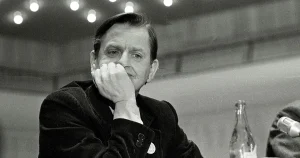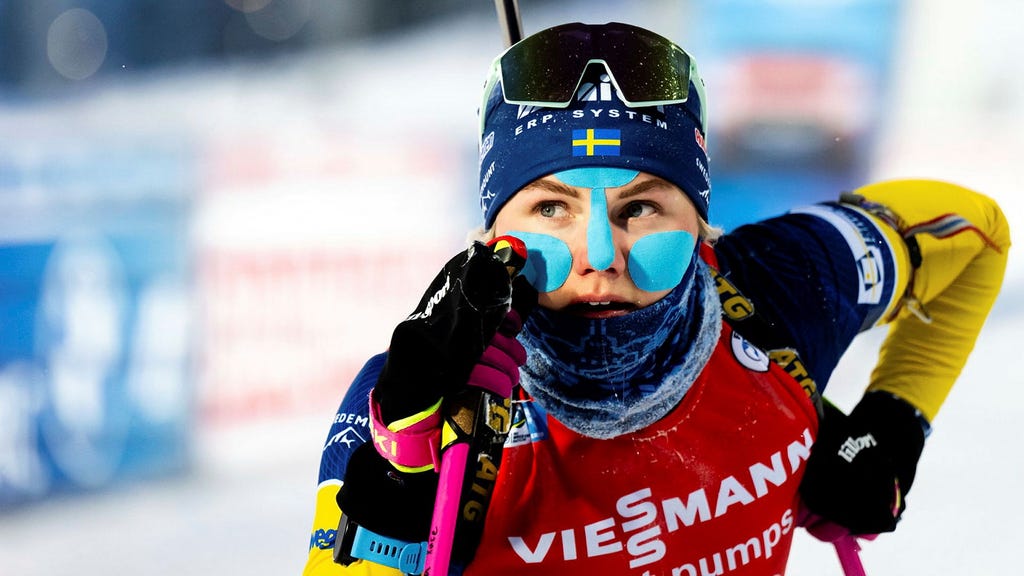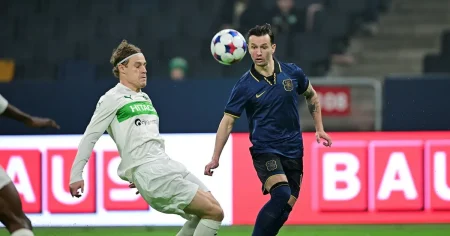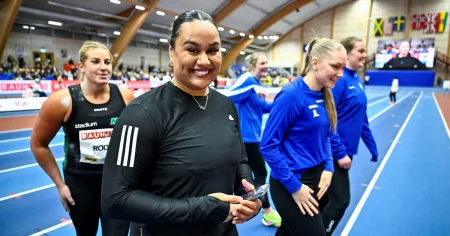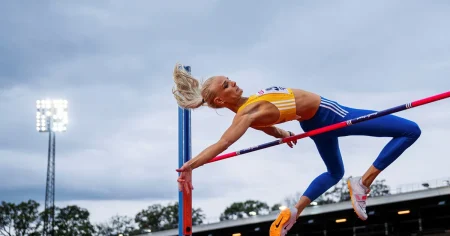The perpetual debate surrounding the optimal path to athletic stardom often overlooks a crucial element: while physical and technical talents are readily identifiable, the mental fortitude required to thrive under immense pressure, both internal and external, remains elusive. Only those who have traversed the demanding landscape of elite sports truly understand the sacrifices and challenges involved. Many aspiring athletes harbor romantic notions of a glamorous and effortless journey, but the reality is often far more grueling. Furthermore, admitting that elite sport isn’t for everyone is a taboo, a confession rarely uttered. Tilda Johansson, a former biathlete, dared to break this silence.
At 25, Johansson walked away from a promising career, acknowledging that the relentless demands of elite sport were incompatible with her overall well-being. She loved the sport itself – the skiing, the shooting, the travel, the rigorous training, and the inherent challenges. However, the all-consuming nature of elite competition proved unsustainable. She couldn’t find the elusive ”off switch,” the ability to compartmentalize her athletic life from her personal life. This constant pressure took a toll on her mental health, a struggle she believes is widespread among high-performing athletes. Johansson’s experience highlights the unspoken reality of elite sport: the constant mental battles, the doubts, and the agonizing question, “Is this really worth it?”
Johansson’s attempt to articulate the overwhelming nature of elite sport reveals three key stressors. First, the sport dictated every aspect of her life, from meals with family to social gatherings with friends. Every decision revolved around optimizing training and performance, leaving little room for spontaneity or connection. Second, her performance became inextricably linked to her self-worth. Every training session, every meal, every recovery period, and every equipment choice had to be perfect. Anything less left her feeling inadequate, not just as an athlete but as a person. Finally, she was perpetually dissatisfied. Even after achieving significant milestones like winning a national championship, securing European medals, and clinching the IBU Cup, her focus immediately shifted to the next conquest, leaving her in a constant state of striving and never truly savoring her accomplishments.
This insatiable hunger for success, while initially fueling her rapid ascent in the sport, ultimately contributed to her burnout. Johansson recalls the anticlimactic feeling of winning the IBU Cup, a moment that should have been a triumph but instead felt like a relief from the relentless pressure. She started her competitive journey relatively late, yet quickly rose through the ranks, joining the national team at a young age. However, the dream of elite competition clashed with the realities of her personal life. She yearned for the normalcy of spending time with friends and family, but the demands of training and competition left little room for such simple pleasures. The conflict between her athletic aspirations and her desire for a balanced life became increasingly unsustainable.
Just as Johansson was poised to enter the world’s top tier of competition, having secured her place in the World Cup, a concussion from a cycling accident forced her to pause. This unexpected break offered a glimpse into a life outside the intense pressure cooker of elite sport. It was a taste of normalcy that resonated deeply, especially as she was already grappling with her motivation and mental well-being. Although she returned to competition, the pressure of expectations and the inability to disconnect from the sport proved overwhelming, leading to a breakdown and another hiatus. Despite a renewed attempt to reignite her career outside the national team structure, the realization that elite sport wasn’t for her ultimately led to her retirement.
Rather than abandoning the sport entirely, Johansson transitioned into coaching, taking on a role at a biathlon academy. Now, she mentors aspiring young athletes who harbor the same dreams she once held. She provides guidance and support, answering their questions about the realities of elite sport and offering a listening ear during challenging times. Johansson’s experience allows her to offer a unique perspective, encouraging these young athletes to maintain a broader perspective and prioritize their well-being. She emphasizes the importance of separating their athletic identity from their self-worth, reminding them that a bad race or a poor performance doesn’t diminish their value as athletes or individuals. Her message is one of balance, encouraging them to embrace rest and disconnect from the sport when needed, fostering a healthier and more sustainable approach to pursuing their athletic goals.


